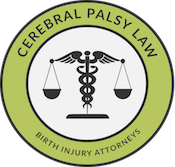What is Gestational Diabetes?
Gestational diabetes is a maternal health condition in which diabetes (a disease characterized by high levels of sugar in the blood) is first diagnosed during pregnancy. Gestational diabetes is one of the most common maternal health conditions—in fact, recent research suggests that gestational diabetes occurs in 18% of all pregnant women. Left undiagnosed and untreated, gestational diabetes may result in a number of dangerous complications in the mother and baby. Its most common resultant injury is macrosomia (macrosomic babies weight over 4,000 grams), which can lead to birth injuries including hypoxic ischemic encephalopathy (HIE), brachial plexus injury, Erb’s palsy, and cerebral palsy (CP).
Whether your child’s cerebral palsy resulted from untreated gestational diabetes or from another maternal health complication, we encourage you to contact Michigan Cerebral Palsy Attorneys for a legal consultation. Our Michigan birth injury lawyers will review your case and inform you of your legal options for no charge. Our attorneys are available to speak with you about your birth injury case 24/7—you may contact Michigan Cerebral Palsy Attorneys in any of the following ways:
Complete this online contact form
Call us toll-free at (888) 592-1857
Open the Live Chat tab to the left of the browser window
What Causes Gestational Diabetes?
Gestational diabetes usually begins midway through the pregnancy when the mother’s body loses its ability to make and use the necessary amounts of insulin (which is the hormone used to convert blood sugar into energy). Additionally, pregnancy hormones can interfere with insulin receptors, resulting in increased blood sugar levels in the mother.
What Are the Risk Factors for Gestational Diabetes?
Women with the following conditions are at a greater risk for gestational diabetes, so it is important that physicians identify these risk factors and test for gestational diabetes if they’re present:
- The mother is older than 25 years of age during the pregnancy
- There is a family history of type 2 diabetes
- The mother previously delivered a baby over nine pounds or with a birth defect
- The mother has a history of poor obstetric care
- Maternal hypertension (high blood pressure)
- Excessive amounts of amniotic fluid
- The mother experienced an unexplained miscarriage or stillbirth in a previous pregnancy
- Maternal obesity or high BMI
- Polycystic ovary syndrome (the mother’s female sex hormones are out of balance)
- Previous diagnoses of gestational diabetes, prediabetes, impaired glucose tolerance, or impaired fasting glycemia
What Birth Injuries Are Associated with Gestational Diabetes?
Babies born to mothers with gestational diabetes are at risk for a number of injuries, complications, and conditions. Uncontrolled or undiagnosed gestational diabetes results in more severe conditions.
- Newborn jaundice
- Premature birth
- Macrosomia: Macrosomia is a condition in which a baby is larger than average for his or her gestational age. Gestational diabetes increases glucose and insulin levels, thereby stimulating fetal growth. Macrosomia can lead to emergency C-section, damage from delivery assistance instruments like vacuum extractors and forceps, shoulder dystocia, cephalopelvic disproportion (CPD), brain bleeds and hemorrhaging, and oxygen limitation issues like hypoxic ischemic encephalopathy (birth asphyxia).
- Reduced uteroplacental perfusion (RUPP): RUPP is a serious condition in which the flow of blood (which carries oxygen and nutrients) is reduced to and from the placenta. RUPP can harm both the mother and baby.
- Seizures or stillbirths may occur if gestational diabetes is left untreated
What Are the Signs and Symptoms of Gestational Diabetes?
Gestational diabetes often develops without signs or symptoms, so it is important for physicians to follow standard medical procedures and screen mothers for it during the pregnancy.
Some symptoms of gestational diabetes include:
- Blurred vision
- Fatigue
- Frequent infections, including those of the bladder, vagina, and skin
- Increased thirst
- Increased urination
- Nausea and vomiting
- Weight loss despite increased appetite
How is Gestational Diabetes Diagnosed?
As recommended by the American Congress of Obstetrics and Gynecologists (ACOG), all pregnant women should be tested for oral glucose tolerance between the 24th and 28th week of pregnancy, and women with risk factors should be tested earlier. When testing for gestational diabetes, a pregnant woman will drink a series of solutions and take subsequent blood tests in order to track glucose levels. When two or more blood glucose level readings are higher than normal, doctors must diagnose the woman with gestational diabetes.
 How is gestational diabetes treated and managed?
How is gestational diabetes treated and managed?
- Home monitoring: Women with gestational diabetes will conduct glucose levels at home to ensure normal and healthy fetal growth.
- Frequent checkups are crucial, particularly during the last trimester.
- Fetal monitoring to check the size and health of the fetus
- Nonstress tests to measure the baby’s heart rate and ensure that enough oxygen reaches the fetus
- Biophysical profile (BPP), which is a scoring system designed to evaluate the baby’s heartbeat, movements, breathing, muscle tone, and amniotic fluid levels.
- Prescription of oral medications or insulin
In cases where the fetus is at risk, doctors should induce labor early—it is common to induce labor before 40 gestational weeks to prevent complications related to macrosomia. The American Congress of Obstetricians and Gynecologists (ACOG) recommends the consideration of C-section delivery in babies exceeding 4,500 grams, so physicians and hospitals must be prepared for emergency C-section and inform patients of the option. Medical professionals must follow standards of care for preterm late delivery and deliver at the gestational age safest to both mother and child (which, according to current ACOG research, occurs between 34-39 gestational weeks for poorly controlled gestational diabetes).
Legal Help for Birth Injuries and Cerebral Palsy from Gestational Diabetes
Proper management and treatment of gestational diabetes can ensure safe deliveries, but the consequences of the condition when left untreated may be disastrous. Failure of a medical professional to diagnose and treat gestational diabetes is considered negligence, and if the negligence results in maternal or fetal injury, it is considered medical malpractice.
Is your child’s cerebral palsy a result of untreated gestational diabetes? If you think you were misdiagnosed or improperly treated for gestational diabetes, we encourage you to discuss your case with one of our nationally recognized birth injury attorneys. Contact a Michigan cerebral palsy lawyer today by calling our office toll-free at (888) 592-1857 or filling out this online form.
Sources:
- Getahun D, Nath C, Ananth CV, Chavez MR, Smulian JC. Gestational diabetes in the United States: temporal trends 1989 through 2004. Am. J. Obstet. Gynecol. 198(5),525.E1-525.E5 (2008).
- American Diabetes Association. Clinical practice recommendations 2001: gestational diabetes mellitus. Diabetes Care 24(Suppl. 1),S77-S79 (2001).
- Maso, Gianpaolo, Salvatore Alberico, Uri Wiesenfeld, Luca Ronfani, Anna Erenbourg, Eran Hadar, Yariv Yogev, and Moshe Hod. “GINEXMAL RCT: Induction of labour versus expectant management in gestational diabetes pregnancies.” BMC pregnancy and childbirth 11, no. 1 (2011): 1-7.
